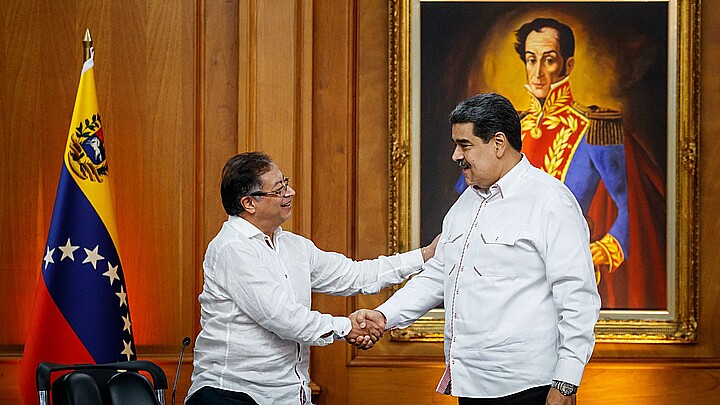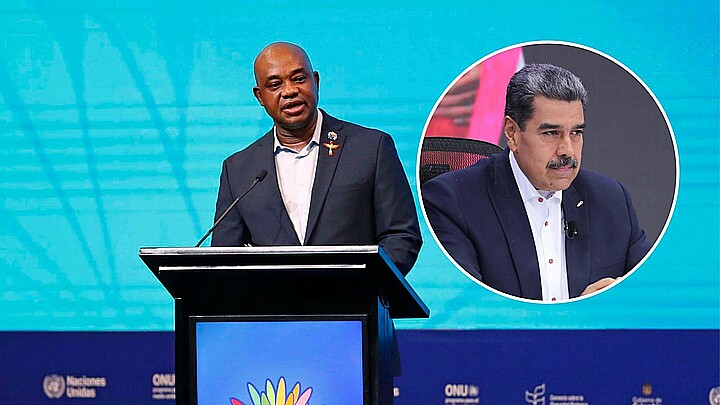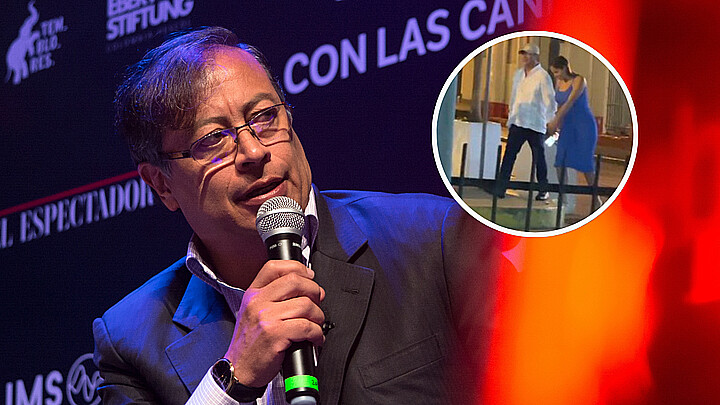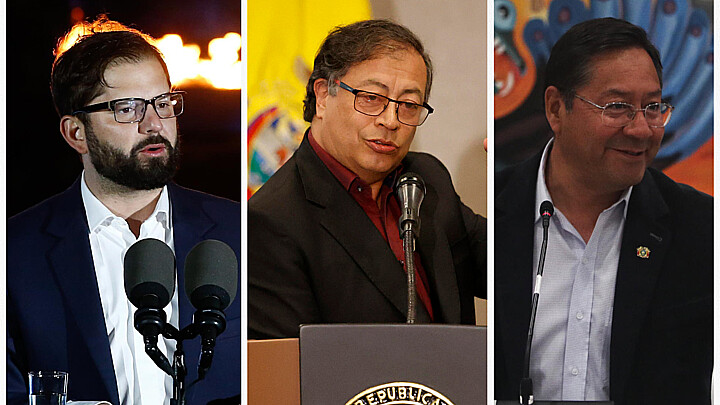Politics
Nationwide demonstrations rock Colombia to protest Petro's expansion of government powers
This Sunday thousands of people took to the streets in the main Colombian capitals in a massive demonstration of rejection to reject the Petro government’s far left reforms
April 22, 2024 12:51pm
Updated: April 24, 2024 7:13pm
Colombians took to the streets this Sunday in an unprecedented series of nationwide demonstrations against recent big-government reforms implemented by left-wing president, Gustavo Petro.
The protest, considered the largest against Petro’s government since he came to power in 2022, reflects widespread discontent with Petro’s attempts to broaden the scope of the government’s power and his recent attempts to convene a National Constituent Assembly.
The demonstrations also come amid one of Colombia’s most significant campaign finance corruption investigations, placing Petro in the crosshairs of prosecutors who believe he used his son to funnel money to his 2022 presidential campaign.
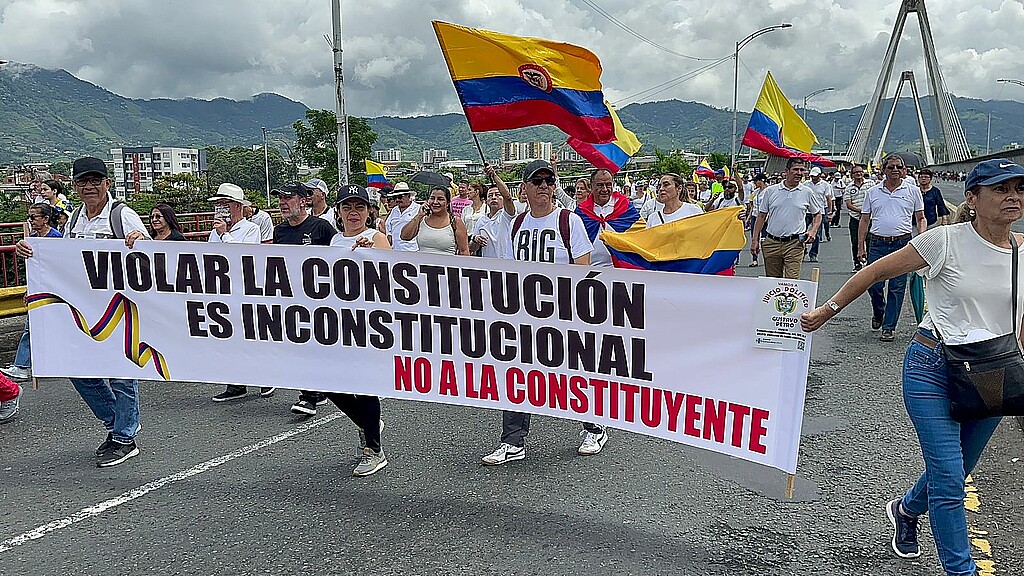
Nationwide protests rock Colombia
The Colombian president’s governability faces one of its most critical moments, with approval of his management sinking to 35%. His ambitious social reforms, such as the health reform, which initially sought to completely nationalize the health system in Colombia, now face strong criticism and obstacles.
In Bogotá, despite recent rainstorms that quenched a prolonged drought, protestors unified and mobilized through professional “associations,” with participants hailing from all vocational backgrounds of Colombian society.
Demonstrators with different backgrounds dressed in white t-shirts carried banners and Colombian flags and joined the march to show their rejection of Petro's government. Professional shippers and transporters also joined the demonstration with their trucks and buses to protest the increase in fuel prices and the growing lack of safety on the roads, where assaults and carjackings have increased.
In cities such as Medellín, Cali, Barranquilla, Cúcuta, Bucaramanga and Pereira the protest brought together a wide variety of people, from medical professionals to transporters, army veterans, housewives and opposition politicians. They all expressed their discontent with the current situation of the country, which has not yet even endured two years under Petro's administration.
Some of the medical professionals wore their standard white coats to demonstrate their concerns over Petro’s reforms to Colombia’s health care system.
“If the popularly elected government of this country refuses to apply the Constitution of Colombia, then the nation must go to a National Constituent Assembly,” the socialist president said.
The key points of the protests
Many Colombians took to the streets due to the possibility that the socialist president wants to convene a National Constituent Assembly due to the stagnation of his reforms in the Congress of the Republic.
That proposal emerged a month ago during a speech in Cali, where Petro expressed frustration over the Colombian Congress blocking his party’s primary legislation, including health reform. As a result of the legislative obstructions, the president suggested the need for a Constituent Assembly.
The statement raised old fears and triggered criticism from both the opposition and some of his own party’s supporters.
Several political leaders condemned the idea, accusing Petro of being “dictatorial” and reminding him of his previous promises not to call a Constituent Assembly. Former presidential candidate Sergio Fajardo lashed out against his position change, and Sen. María Fernanda Cabal called him a “liar and radical leftist.”
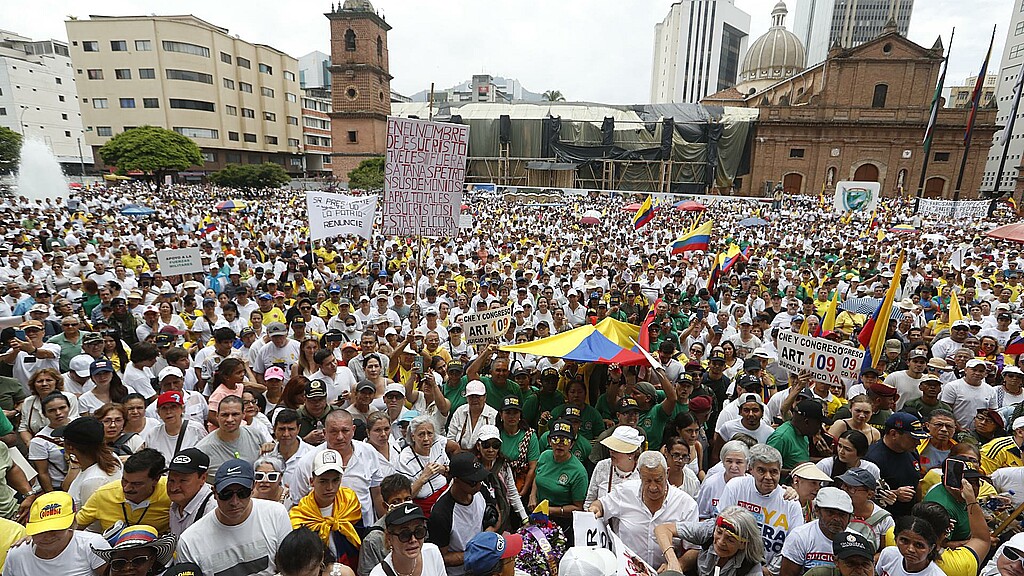
Nicolás Petro accused of illicit enrichment and money laundering
Another point of contention for the Colombian people circle around accusations of money laundering and illicit enrichment and against the president’s son, Nicolás Petro.
Although the Prosecutor's Office accused him of financial crimes, there has been no major progress in the case since Petro reappointed the nation’s attorney general.
The investigation into Petro’s son was initially opened in March 2023, when the Attorney General's Office identified Nicolás Petro Burgos as a suspect. According to Nicolás’ ex-wife, Daysuris Vásquez, there was a scheme orchestrated so the son of the Colombian president could receive money from illicit sources to support his father's campaign, and purportedly without the candidate’s knowledge.
Prosecutors identified 1,053 million Colombian pesos (about 260 thousand dollars) cannot account for. The government suspects Petro Burgos was part of a money laundering scheme linked to Petro’s campaign.
According to Colombian reports, the source of the funds can be linked to Samuel Santander Lopesierra, known as 'the Marlboro Man', and Gabriel Hilsaca, all part of a purported scheme to finance Gustavo Petro's 2022 presidential campaign.
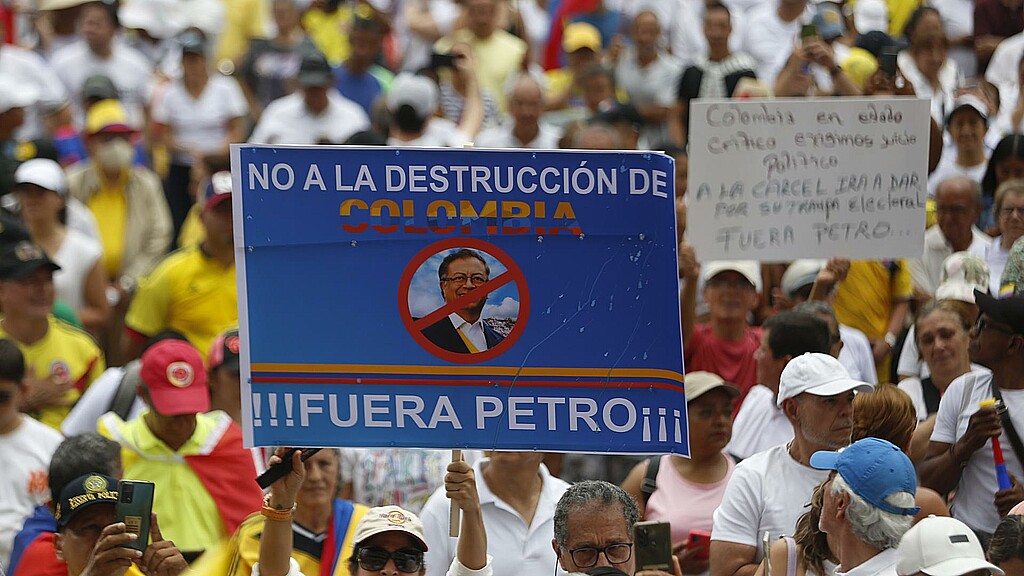
Some reports suggest some of the money came from an unidentified individual convicted of drug trafficking charges in the United States.
As a result, the Congressional Impeachment Commission began an investigation into whether any of Gustavo Petro’s campaign funds originated from drug cartel money.
After the government conducted interviews with various witnesses, prosecutors and the National Electoral Council found probable cause to advance their investigations, say reports.
La clase dominante. pic.twitter.com/P3ueNmvfBr
— Gustavo Petro (@petrogustavo) April 21, 2024
Some sources suggest the investigation has taken Colombian law enforcement officials into other areas that could reveal the president’s involvement to support an illegal financing scheme in the billions.
Despite recognizing the demonstrations against him, the Colombian president has tried to minimize their importance and stigmatized the protesters as the “ruling class” that risks destabilizing the South American country.

